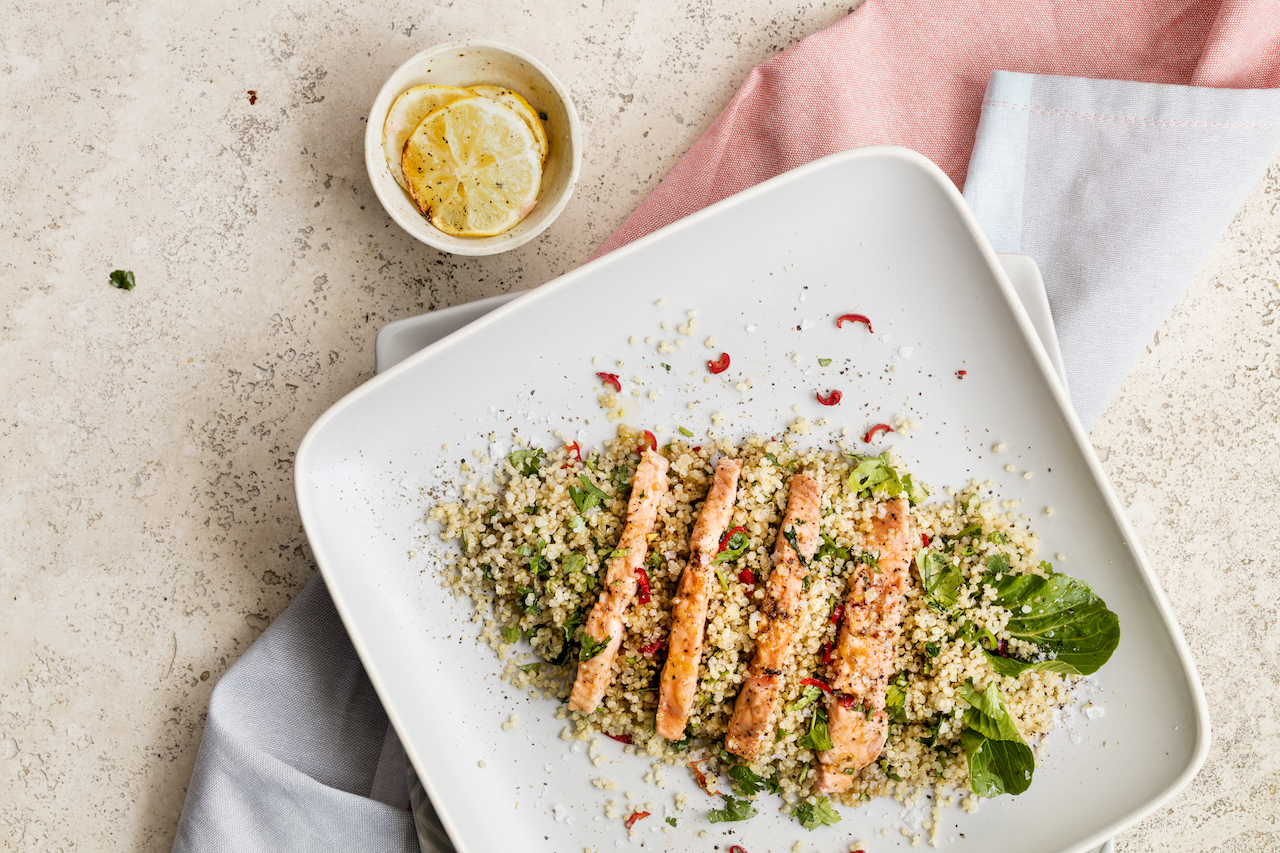This week is heart week – an opportunity to start a conversation about heart health and the steps needed to reduce risk of heart disease. This year’s focus is talking about the importance of physical activity in reducing the prevalence and impact of risk factors for heart disease. To add to this awareness, in this weeks newsletter I am talking about the importance of nutrition when it comes to heart health and specifically, the top 5 foods to add to your diet for a healthy heart!
Top 5 foods for a healthy heart
Hemp seeds, flaxseeds seeds and oily fish (salmon, mackerel, sardines)
Hemp seeds, flaxseeds and oily fish are sources of omega-3 fatty acids. Omega- fats are called ‘essential’ because they cannot be made by the body and must be consumed in the diet. Omega 3 fats are particularly good for heart health as they are linked to a reduced cardiovascular disease risk due to their ability to reduce triglycerides, improve blood vessel elasticity and reduce the potential for blood clots and inflammation. Aim for at least 2 serves of fatty fish per week and 30g hemp or flaxseeds most days.
Nuts –walnuts, brazil nuts, cashews, hazelnuts and macadamia nuts
Nuts are a great source of plant-based protein, healthy fats, fibre, antioxidants, vitamins and minerals. Research has shown that eating 20g of nuts daily can cut peoples risk of coronary heart disease by nearly 30%. Walnuts have one of the highest antioxidant content of all nuts and are a particularly good choice when it comes to heart health!
Herbs and spices – turmeric, garlic, rosemary, cinnamon, ginger and paprika
What do all of the above have in common? They are a rich source of antioxidants and anti-inflammatory compounds! Both of which are incredibly beneficial for heart health. Specifically, it is most beneficial to include spices in high fat meals, for example curries using meat or roasts – as antioxidant rich spices and herbs have been shown to reduce fats in the blood by 30% compared to eating the same meal without herbs/spices. This means, herbs and spices are a fantastic way to flavour food whilst also benefiting health.
Fibre rich foods – oats, legumes, pears/apples, wholegrains, broccoli, cauliflower
Fibre is a type of carbohydrate, our body cannot break down and it passes through the body undigested. Fibre is a great tool to help support heart health because fibre can help to lower blood pressure, cholesterol and help us to maintain a healthy weight. Soluble fibre is particularly good for lowering cholesterol because it binds to cholesterol and helps with the removal of cholesterol from the body. Examples of soluble fibre are chia seeds, linseeds, oat bran, green peas and psyllium.
Blueberries
Blueberries offer a rich source of anthocyanins (antioxidant compound), known to be protective against high blood pressure, a known risk factors for cardiovascular disease. Animal studies also suggest blueberries can offer protective effects against atherosclerosis and may also make blood vessels more elastic. In terms of serving size, around ½ cup 3 or more times per week is necessary to gain the most benefit.
